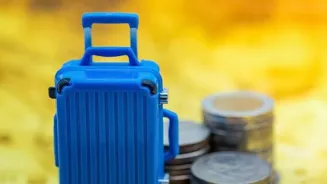Embark on a budget-friendly adventure! Learn to plan your travel finances wisely for a memorable journey
Folks, wanderlust calling? Dreams of backpacking through the Himalayas, exploring ancient ruins in the South,
or simply relaxing on Goa's beaches dancing in your head? But then the dreaded thought strikes: "How will I manage the paisa?" Fear not, travel enthusiasts!
Budgeting for a trip, even in these mehengai times, is totally achievable. It just requires a little dimaag and planning. This article breaks down the art of travel budgeting, so you can explore India (or even videsh) without breaking the bank.
Select dream destination wisely for budget travel, plan details
First things first, figure out where you want to go. Are you envisioning the snow-capped mountains of Himachal Pradesh, the serene backwaters of Kerala, or the historical magnificence of Rajasthan? The destination is the cornerstone, influencing every other expense.
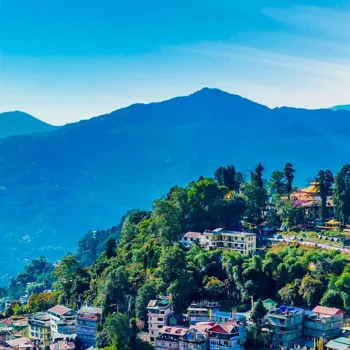
Once you've selected your dream destination, it's time for detailed research. Explore the local attractions, mode of transport, and food landscape. This groundwork provides a realistic picture of the expected expenses, enabling you to create a more accurate budget.
Remember to factor in the time of year. Traveling during peak season will undoubtedly cost more due to increased demand for accommodations and flights. Off-season travel can bring significant cost savings but be mindful of weather conditions and potential closures of attractions.
Plan travel expenses wisely: categories, research, budget options, save on food, buffer fund
Next step, jot down all possible expenses. This is where the lekha-jokha begins. Break it down into categories: transportation, accommodation, food, activities, and miscellaneous. For transportation, research flight or train ticket prices well in advance.
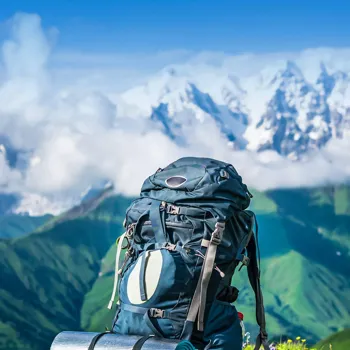
Check multiple websites and consider factors like layovers and baggage fees. Trains, especially sleeper class, are often a more budget-friendly option within India. For accommodation, explore hostels, guesthouses, or budget-friendly hotels instead of luxurious resorts.
Consider the location; staying slightly away from the city center can often result in lower prices. When it comes to food, balance restaurant meals with exploring local eateries. This not only saves money but also introduces you to authentic flavors.
Buffer in a miscellaneous fund for unexpected expenses like souvenirs, medical supplies, or that irresistible piece of handicraft you spot in a market.
Track expenses diligently to identify overspending and adjust accordingly, enhancing budget awareness
A crucial element of smart budgeting is tracking expenses. Start a simple spreadsheet or use a budgeting app to diligently record all spending. This is like having a travel khata - it provides real-time insights into your spending habits.

Regularly review the captured expenses to identify areas of potential overspending. If restaurant bills are consistently higher than anticipated, consider cooking some meals yourself if your accommodation has kitchen facilities.
Or perhaps, if local transport costs are exceeding your expectations, explore options like renting a motorbike or using ride-sharing services. Early detection of overspending allows for course correction, ensuring you stay within the pre-defined budget limits.
This process also hones your budgetary awareness and helps you make more conscious spending decisions throughout the trip.
Flexibility is key to saving money while traveling
One of the biggest money-savers is flexibility. Be open to changing your plans. If a particular attraction is exceptionally expensive, consider an alternative. Look for free activities like walking tours or visiting parks.
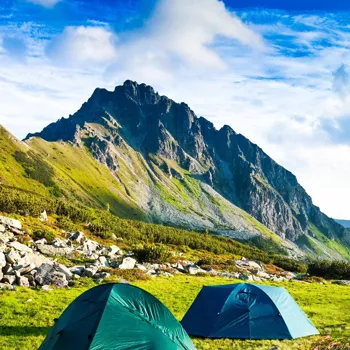
Embrace local transport options like buses or auto-rickshaws instead of expensive taxis or private cars. Negotiate prices with vendors, especially in markets. A little bit of bargaining power can go a long way in reducing expenses. Avoid sticking rigidly to a pre-set itinerary.
Spontaneity can lead to unexpected discounts and unique experiences. For instance, you might stumble upon a local festival or a hidden gem of a restaurant that wasn't on your original list. Embrace the unexpected, and your pocket – and your mind – will thank you for it.
Flexibility transforms travel from a regimented journey to a truly liberating, and affordable, adventure.
Leverage travel rewards and deals for cost-effective adventures
Finally, consider travel rewards and offers. Many banks offer credit cards with travel rewards programs. Accumulate points with your daily spending and redeem them for flight tickets, hotel stays, or shopping vouchers.
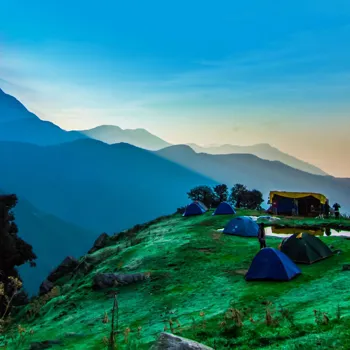
Keep an eye out for travel deals and discounts offered by airlines, online travel agencies, and accommodation providers. Subscribe to newsletters or set up price alerts to stay updated on the latest offers.
Utilize wallet apps and UPI for transactions as they often have cashback rewards and promotional offers. Even a small saving on each transaction accumulates over time, adding up to a significant amount by the end of your trip.
Remember, every rupee saved is a rupee earned – and that savings can be channeled to extend your trip or add to your next adventure.
Travel hacking, in its essence, is about becoming a savvy spender and leveraging available resources to maximize travel experiences with efficient budgetary management.
AI Generated Content. Glance/InMobi shall have no liability for the content